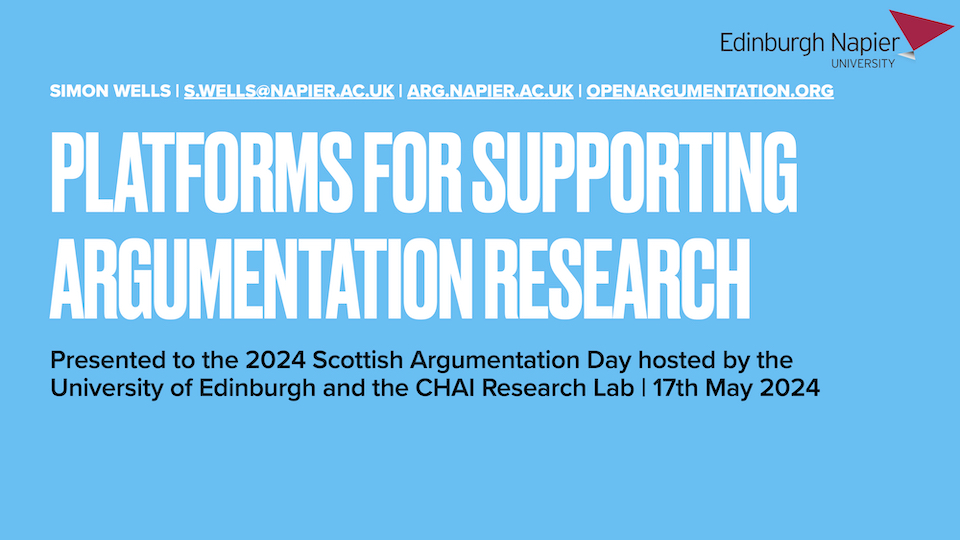
For this years Scottish Argumentation Day I plan to present some exciting developments regarding the Open Argumentation Platform. The talk is titled “Platforms for Supporting Argumentation Research”.
The platform is a set of permissively licensed (GPL3) free software tools, libraries, APIs and interfaces [Wells (2020b)]. The core components comprise: Argument description, storage, manual analysis, computation, dialogue, and mining functionalities. All components aim to have the following:
- A simple and consistent but extensible underlying data model.
- Clear extension points for domain specific analysis & representation tasks.
- Tooling to support import from, and export to, other relevant formats, e.g. AML, AIF, &c.
- An open source canonical implementation.
- Supporting Documentation.
- Free Software (GPL3) licensing.
- A completely open development model including public GIT repository & public issue/bug tracking.
The overall goals of the platform are to support the general adoption, use, and integration of argument-oriented software tools. This is achieved through the provision of flexible and configurable toolchains that enable structured argument and dialogue information to be piped to where it is needed. It also enables users to pick & choose tools to match their problem so they can install only what they need, as they need it. We also aim for simple set-up and exploitation of argumentative tools and consistent use of underlying tools and languages.
An important aspect is to enable adoptees to run their software within private infrastructure (laptop, server) as well as public services so there is a clear route towards data privacy.
Ultimately the aim is to move argumentation technologies up the TRL stack by making them easier to adopt and exploit.
The following links will take you directly to the project pages for each of the Open Argumentation Platform components that I talked about today:
References
- S. Wells (2020) “The Open Argumentation PLatform (OAPL)” in Proceedings of Computational Models of Argument (COMMA 2020), Frontiers in Artifical Intelligence, Volume 326: Computational Models of Argument, pages 475-476, Perugia, Italy.